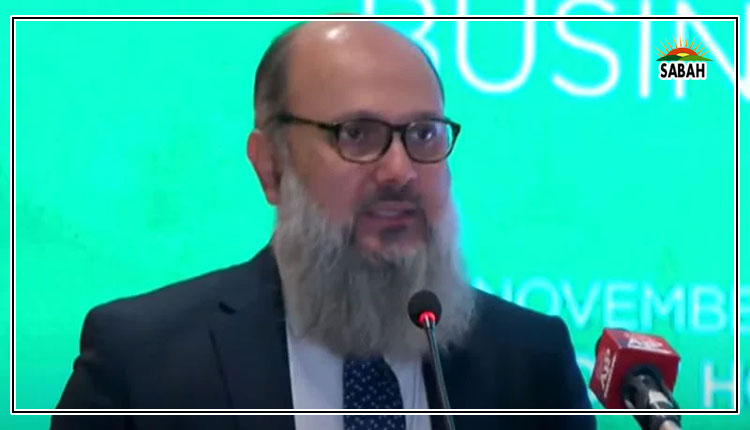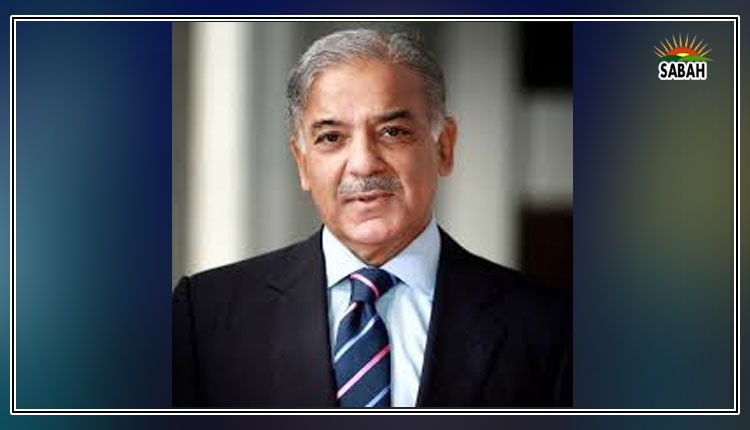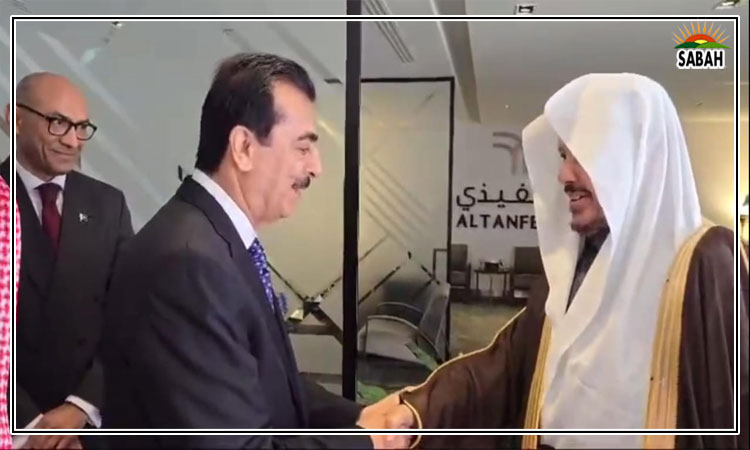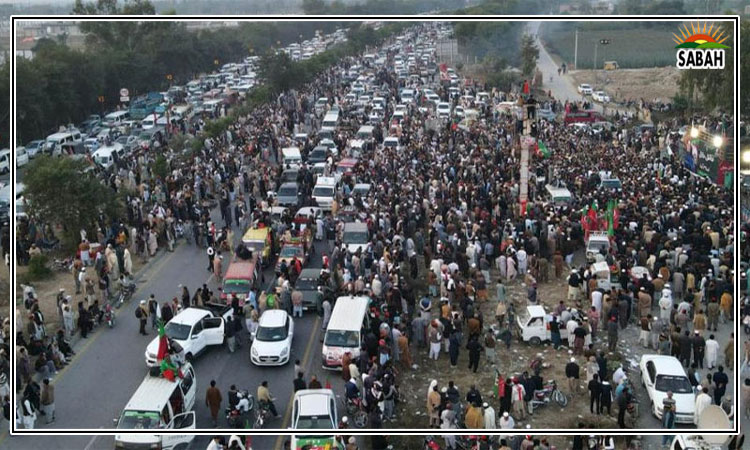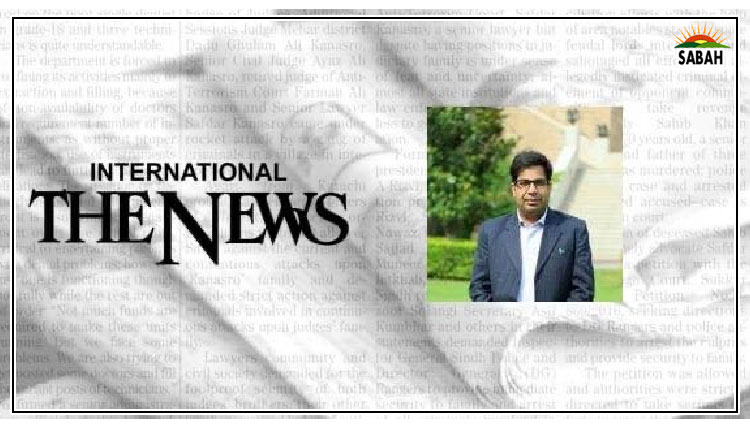Rethinking the United Nations ….Amanat Ali Chaudhry
While the UN General Assembly sessions, held every year in September, provide world leaders with an opportunity to take stock of the state of the world, articulate their foreign policy priorities and propose solutions, the 79th Session of the UNGA scheduled to begin on September 24 this year will be preceded by the Summit of the Future (SOTF).
Termed as a ‘once-in-a-generation’ opportunity, the two-day SOTF meeting in New York on September 22-23 will witness national statements from the world leaders followed by their endorsement of the Pact for the Future.
The proposal for the Summit of the Future emanated from the UN secretary-general’s ‘Our Common Agenda’ report, which he submitted in response to increasing calls from world leaders for a show of greater human solidarity to build a more peaceful future for the succeeding generations.
The ‘Our Common Agenda’ report identified that multilateralism has weakened considerably with the result that the world faces an urgent choice between ‘breakdown and breakthrough’. Global crises such as Covid-19 established that international solidarity was in short supply, as powerful countries took to hoarding vaccines to the detriment of millions of the poor.
A combination of recent challenges such as the ongoing Gaza and Ukraine wars, the triple crisis of food, fuel and finance, and the scourge of inequality in terms of access to finance, technology and opportunity has shaken the world order.
While the UN was already under critical scrutiny, the above crises have underlined that the multilateral organization is unequal to the challenge of finding solutions to global problems and ensuring the implementation of its charter in its current structural design.
UN Secretary-General Antonio Guterres put it succinctly when he said, “Twenty-first-century challenges require twenty-first-century problem-solving institutions.” At another place, he said, “Today’s challenges are moving at speeds far too fast for the current tools to solve them due to outdated institutions that are designed for another era and another world.”
When the UN came into being in 1945, its establishment was in the context of the failure of the League of the Nations and an altered geopolitical reality after the Second World War, thus heralding the beginning of the new US-led world order. With 51 countries as its members, the organizational structure of the UN reflected new power centres that dominated the organization’s decision-making processes, especially on critical issues such as peace and security.
Limping through different stages in the evolution of the international system, the UN today has 193 countries as its members with small and medium powers forming the majority of the organization’s membership. These countries, which are at different stages of development, have distinct priorities that may not always align with those of the major powers, as they seek greater access to concessional finance and technology to power their economic journey.
Nothing illustrates the inadequacy of the UN in meeting the ever-increasing global challenges more than the dysfunction of the UN Security Council, which has failed miserably in upholding its mandate of maintaining peace and security. As Israel’s brutal war continues unabated with more than 42,000 people including children and women dead, the UNSC looks the other way in utter helplessness despite the adoption of two resolutions demanding a ceasefire.
While the UNSC periodically debates the Palestinian Question with a special reference to Gaza, Israel continues to render the word ‘impunity’ into an art form in total and shameless disregard of the UN Charter, the Geneva Convention and the international humanitarian law. What’s more, the UN is not the venue of discussions on the peace deals between Hamas and Israel, as they continue to take place outside of the UN system, thus rendering the world body completely irrelevant.
It is in this context that the Summit of the Future acquires an added significance in shaping a better, more peaceful and prosperous future, one which inspires hope and rebuilds trust among the member countries and can lay the basis for enhanced global cooperation to address the global challenges.
From the issues of peace and security to climate change to addressing development deficits to easing geopolitical tensions between the major powers, every aspect of international relations requires a collaborative approach to problem-solving.
With rising inequality, a deepening technological divide, the spread of populism and the confidence in the multilateral system at its lowest, the world stands at an inflection point in history.
While the Summit rightly seeks to achieve the overarching objectives of reaffirming the UN Charter as the basis of global cooperation; rethinking multilateralism, boosting implementation of existing commitments and proposing consensual solutions, the details of the pudding lie in the eating.
The negotiations around the Pact for the Future, a process facilitated by Germany and Namibia as co-chairs, have faced several problems due to differences in the priorities of the member countries. The foremost area of divergence has been the stark inability of the developed world to agree to the provision of concessional finance required by the developing countries of the Global South to deliver on the challenge of climate mitigation and adaptation.
Against the demand of trillions of dollars, the amount made available so far is a paltry $100 billion, which falls far short of the need.
The economically powerful countries have shown no warmth to the idea of rethinking the international financial architecture, as they consider such rearrangement as posing a significant danger to their economic hegemony.
The reform of the UN system, the UNSC in particular, is another area where consensus has eluded despite the UNSC reform having been on the agenda for as long as one can remember.
There is a widespread realization that the UNSC needs reforms to be able to cope with the challenges to global peace. The differences lie in how to bring about these reforms. The UNSC, in its current format, does not reflect the existing political reality.
While the Permanent Five (P5) are not ready to consider regulation on the use of veto much less doing away with its use altogether, especially on questions involving the genocide of civilians, a group of four countries (G4) – India, Germany, Brazil and Japan – are lobbying for permanent seats on the Council.
The Uniting for Consensus (UfC) Group, of which Pakistan is a leading member along with fourteen other countries, has resisted the idea of the expansion of the Security Council, stating that the expansion of the permanent membership will further increase the Council’s dysfunction. It has proposed the addition of non-permanent but elected members in addition to mooting the idea of regional and cross-regional representation in line with the positions of the African Union and the Arab and OIC Groups. Pakistan has strongly advocated the principle of sovereign equality among the UN member states as the basis of its principled position on the UNSC reform.
Another sticking point between the Global North and Global South is the notion that the current system of trade, investment and technology transfer does not serve the interest of the latter. Developed nations prioritize sustainability and market-driven systems. This has led to tensions over how much the ‘Pact for the Future’ should reform global economic governance.
Differences have also arisen around regulating digital space, including issues related to data privacy, artificial intelligence and cyber warfare. How to strike a balance between promoting technological innovation and enforcing regulation that protects public interest and achieves digital equality has also dominated discussions.
These challenges notwithstanding, the Summit of the Future represents a serious movement forward in righting the historic wrongs and charting a way forward for the betterment of humanity.
As Prime Minister Shehbaz Sharif put it in his statement during a virtual event titled ‘Global Call Ahead of the Summit’, “Effective international cooperation is more urgent today than ever before. The Summit of the Future represents a great opportunity. We must not lose it!”
The writer is an alumnus of the University of Sussex and has a degree in international journalism. He tweets/posts @Amanat222
Courtesy The News



